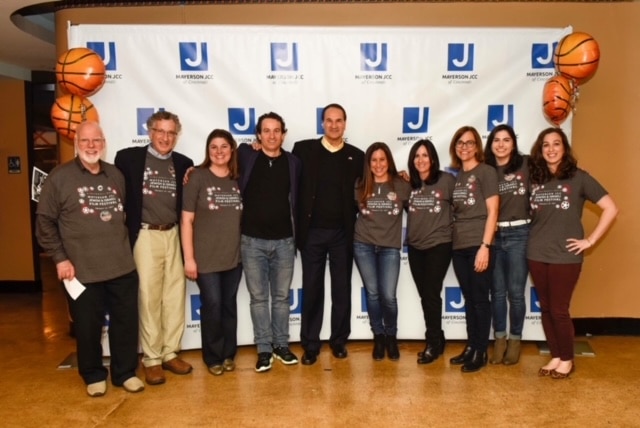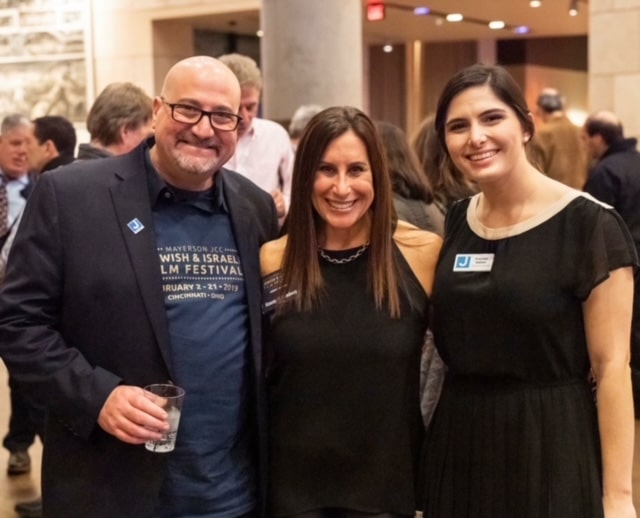
Through films, we can experience the world through a different lens. We are transported, right from the comfort of our own seat, to a different time or place, and into a different experience. Films can bring communities together and open up new conversations.
The Mayerson JCC Jewish & Israeli Film Festival aims to do that within the Cincinnati community. For 35 years, the J has brought an award-winning lineup of films from across the globe to this community every winter. The Festival opens this year on January 29 and will feature a fully virtual slate of films. 
“I love taking part in an event that brings together people from all walks of life – those from our Jewish community, as well as the broader Cincinnati community,” Film Festival Chair Stacey Schimberg said.
Schimberg has been a part of the Film Festival Committee for seven years and a chair for five. During those years, she has seen how each lineup has influenced the community in a positive way. Some years’ themes have focused heavily on the Holocaust, while others were mostly documentaries. This year’s collection of films spans across different stories and embraces the universal theme of showing films all around the world.
There has been a drive in recent years to make sure the films are diverse and focus on a variety of themes, including LGBTQ issues, race, and the conflict in Israel. The movies come from all over the world, and the diversity of stories reflect that.
“The committee starts with 50-60 films, and we whittle that down to about 12-15,” Schimberg said. “We want to make sure each of the films connect with someone on our committee, ensuring we hit a wide range of audiences from different ages, ethnicities, and genders. We want the films to expand your view on the world.”
“There is a strong interest in the festival, within and beyond the Jewish community,” Cultural Arts Manager Frances Kahan said. “And because we have been virtual during the pandemic, our reach has even expanded outside of Cincinnati. There’s a low barrier for people to engage—you stream a film from your personal device, or attend at the J or another local movie theatre—so people find it accessible and easy to attend over and over again.”
Schimberg notes that all the movies have an impact. From comedies to dramas to documentaries, viewers are able to participate in new discussions or find it relatable to their lives.
 “Thou Shalt Not Hate is a great film, and its message focuses on the nature of evil and our how our response as victims of hatred resonates worldwide,” Schimberg said. “Lune is another great one that focuses on the stigma of mental illness, and A Common Goal puts an interesting twist on a sports documentary, with a look at how race impacts relationships in the locker room and beyond. I loved them all.”
“Thou Shalt Not Hate is a great film, and its message focuses on the nature of evil and our how our response as victims of hatred resonates worldwide,” Schimberg said. “Lune is another great one that focuses on the stigma of mental illness, and A Common Goal puts an interesting twist on a sports documentary, with a look at how race impacts relationships in the locker room and beyond. I loved them all.”
There will also be special virtual events for Q&A discussions with directors or experts on some of the issues addressed in the films. Some films also include short films for viewers to enjoy.
The Opening Night film is Persian Lessons, available to stream during a 48-hour watch period beginning January 29. A virtual discussion with the film’s director, Vadim Perelman, will take place a few days later to provide more insight into the film.
“Even with distance, we are all connected,” Kahan said. “This festival presents that opportunity for global connection and to hear everyone’s stories. We can’t wait to see everyone enjoy these incredible films!”
